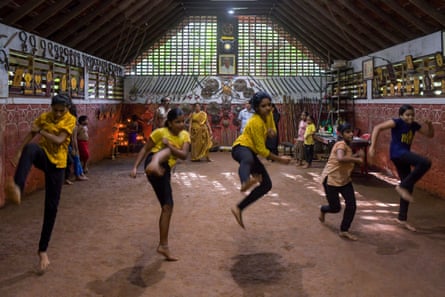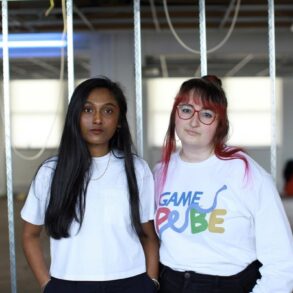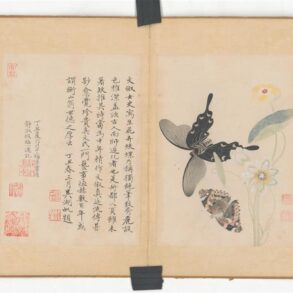Today the pupils are mostly schoolchildren, aged from seven up to teenagers. The teacher is an 82-year-old woman known to all as Sword Granny. Inside her martial arts school – a large hall with walls adorned with trophies and mementoes – in Vatakara, in the southern Indian state of Kerala, the session begins with prayers and warmup exercises.
Then Meenakshi Raghavan takes the class through the precise movements of Kalaripayattu, India’s oldest martial art, their bare feet padding across a floor of red dust mixed with medicinal herbs.
Every day, this formidable women teaches Kalaripayattu to youngsters and the older men and women of the town alike.
Raghavan has built a team of teachers who work alongside her at the Kadathanad Kalari Sangham school, but she has become especially renowned in this region not for her age, but for her focus and commitment to empowering the next generation of young women.
Sword fighting is an essential part of Kalaripayattu, and the grandmother moves swiftly and with great grace when she swings her sword at the opponent.

Kalaripayattu is believed to have begun in the coastal state of Kerala about 5,000 years ago, probably deriving its name from the Malayalam words kalari, meaning battlefield, and payattu, practice. As European invaders arrived in India with guns and cannon it began to falter in popularity, and was finally banned by India’s British colonial rulers in 1804.
But the art form survived underground, experiencing a resurgence in the early 20th century and gaining new life after India’s independence in 1947.
Raghavan’s martial arts school was started by her late husband, Raghavan Gurukkal, in 1949. They met when she joined as a student, and after his death she took charge of his legacy. “This school is located at the same spot where my husband built it. And anyone is welcome here, we do not charge anything to our students,” she says.
after newsletter promotion




Raghavan began practising martial arts at seven, under the guidance of her father, who recognised the importance of self-defence in a society where women were often vulnerable. Now, 75 years on, she passes on her wisdom, personally teaching more than 200 students, predominantly girls, who flock to her school seeking physical prowess and inner strength.
“When young girls and women look at me, they feel inspired that if I can do such a thing at this age, so can they at their age,” she says.
Raghavan says self-defence techniques are essential for young women in these times and martial arts is the best way to equip them.
For her, the teachings of Kalaripayattu instil self-confidence and mental resilience, crucial in a society where women face systematic marginalisation and violence. Crimes against women have been on the rise in the past decade, according to India’s National Crime Records Bureau. Of nearly 6m crimes recorded by police in India in 2022, 445,256 involved crimes against women, a rise of more than 30% since 2016.
“Kalaripayattu plays an important role in building mental strength and self-confidence,” she says. “Offering girls hope and empowerment.
“Given how crimes against women are increasing everywhere, it is important that young girls are equipped with the techniques of self-defence. It is not just a skill, it has become a necessity and essential for survival,” she adds.




The red-sand training ground – or kalari – of her school is filled with energy and determination as her students engage in their rigorous drills and intricate movements, mastering the techniques passed down through generations.
“When I train young girls and women, I keep in mind to teach them Kalaripayattu for its essence and their self-defence,” she says.
Raghavan is now connecting with people beyond Kerala too. “I also have special groups with people coming from different countries who seek one-on-one training,” she says proudly.







